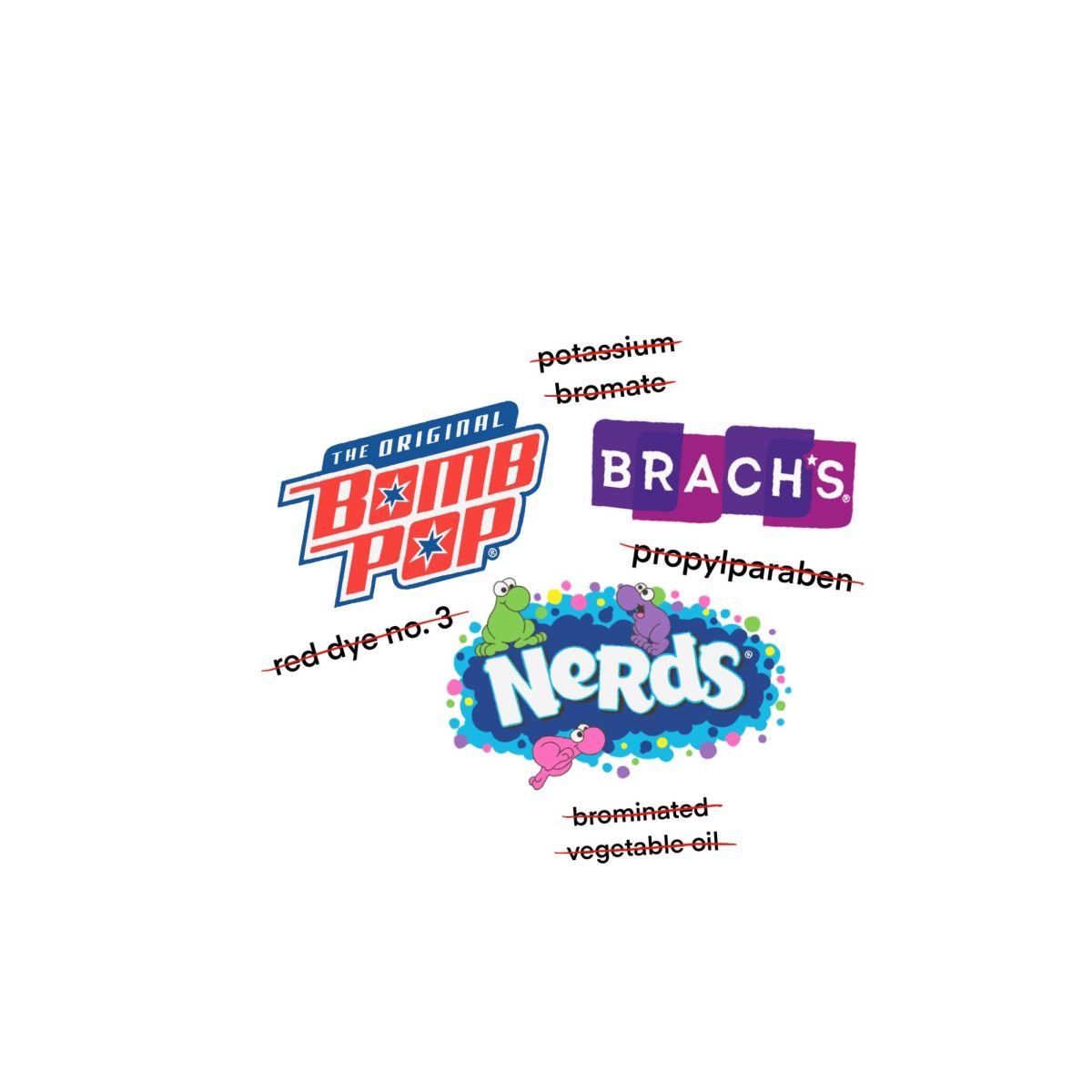Beginning January 1 2027, four chemical food additives linked to cancer and reproductive issues will be banned in California: brominated vegetable oil, propylparaben, potassium bromate and red dye No. 3. Governor Gavin Newsom signed the California Food Safety Act into law on October 7, 2023, making California the first U.S. state to have different food safety regulations than the rest of the country.
The act will not ban any products outright. Because these additives are present in many packaged food products including sports drinks, sodas, breads, tortillas, baked goods and candies, major brands such as Betty Crocker, Brach’s and Dole will need to adjust the recipes for many of their products.
The four additives addressed in the bill have long been outlawed in the European Union (EU) due to health concerns. California is currently the first and only U.S. state to enact this type of ban. A similar bill is circulating in New York, which, if passed, would prohibit the same four ingredients, as well as titanium dioxide. Titanium dioxide is a food coloring agent found in Skittles and was excluded from the final version of the California Food Safety Act after an internet frenzy over what media users are calling the Skittles Ban.
Consumer Reports as well as the Environmental Working Group (EWG), an organization that highlights outdated legislation surrounding the food industry and agricultural practices, co-sponsored the bill. Both organizations see California’s restrictions as a positive milestone for food safety in the U.S., a sentiment that many Urban students share.
“I want to know what’s happening with what I consume,” said RaeLynn Smith ‘27. “[These new restrictions] have changed my whole perception of what I put into my body.”
“What you put in your body has a direct effect on your health and the longevity of your life,” said Urban Chef David Labao. “We need to pay attention to additives.”
Although their products are not being taken off of shelves, many major food manufacturers are displeased by the legislation, which affects an estimated 12,000 products.
In a statement released on October 9, the National Confectioners Association, a U.S. trade organization centered around manufacturing and distributing chocolate and candy products, wrote, “This bill will undermine consumer confidence and create confusion around food safety. … [It] replaces a uniform national food safety system with a patchwork of inconsistent state requirements.”
While some big companies are frustrated by the new restrictions, others such as The Coca-Cola Company, Pepsi and Panera Bread are voluntarily pulling the banned additives from their products.
California holds an important economic position both globally and within the U.S. The state has the fifth-largest economy in the world after Germany, the U.S. as a whole, China and Japan, as well as being the most populated state in the U.S. If companies want to sell their products in California, they must adhere to the new guidelines or face a $10,000 fine per violation and removal of their products from the market.
Producing a separate version of a product for only one state would prove expensive and impractical, meaning that in some cases, the banned additives will be removed from products across the country. “It comes down to the money,” said Labao.
The prepackaged products available for purchase at Urban are curated with safety in mind, but the California Food Safety Act has Labao taking another look at the ingredient lists on the products Urban offers.
“I hydrate you, I caffeinate you and I nourish you,” said Labao. “I don’t want to [say], ‘Here’s some sugar,’ or, ‘Here’s a prepackaged thing,’ just because I want to sell it to you. I care about what we’re feeding the students at Urban.”


